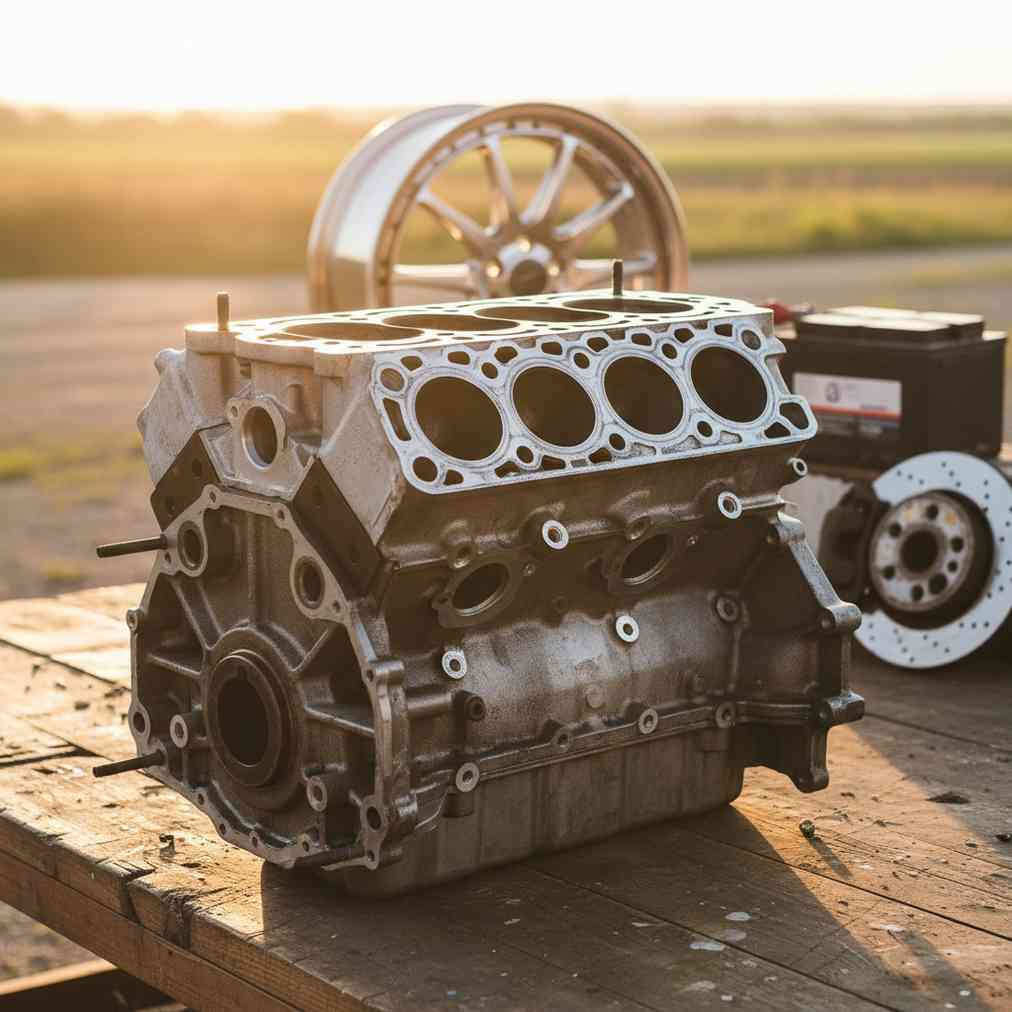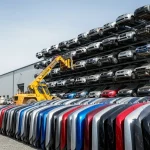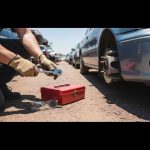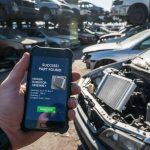Understanding Your Junk Car’s Value: Key Factors That Determine Cash Offers
When it comes to selling your junk car for cash, understanding the value drivers can mean the difference between a disappointing offer and maximizing your payout. The value of a junk car isn’t simply based on its age or overall condition, but rather a complex combination of factors that savvy sellers should understand before approaching local junkyards.
Vehicle Make, Model, and Year
Certain makes and models command higher prices in the junkyard market due to parts demand. Popular brands like Toyota, Honda, and Ford typically fetch better offers because their parts are in greater demand and more easily resold. Newer vehicles generally offer higher value than older models classified as junk because of better intact parts and modern electronics that can be salvaged and resold.
Vehicle Condition and Completeness
The overall condition is one of the most significant value drivers for junk cars. Several key areas affect your car’s worth:
- Body and Exterior: Minimal rust, dents, and intact body panels increase value. Vehicles heavily damaged or with structural issues are worth less since fewer parts can be salvaged
- Engine and Mechanical Functionality: A working engine or any operational parts greatly increase the payout, as yards can resell or refurbish these components
- Interior Features: Intact seats, electronics, dashboards, and controls boost value. Extensive interior damage reduces it
- Missing Components: Absence of key parts such as batteries, catalytic converters, tires, wheels, and major engine components significantly reduce offers
Catalytic converters alone can add hundreds to the offer price because of their precious metal content, containing platinum, palladium, and rhodium that are highly valuable in the scrap market.
Weight and Metal Content
Junk car prices heavily depend on the vehicle’s weight and metal composition. Most vehicles contain steel (body), aluminum (common in newer vehicles), copper (wiring, radiators), and precious metals in catalytic converters. According to current market data, scrap car prices range from $150 to $200 per ton, with the exact payout varying by metal composition and current market conditions.
Current Market Pricing and Trends for 2025
Understanding current market trends helps sellers time their sales for maximum profit. Scrap metal prices in 2025 have shown volatility due to global economic factors, but several key trends are emerging.
| Factor | Current Value Range | Impact on Payout |
|---|---|---|
| Scrap Metal Price | $150 – $200 per ton | Base value foundation |
| Catalytic Converter | $50 – $800+ per unit | Significant value addition |
| Complete vs. Incomplete | 20-40% variance | Major pricing factor |
| Running vs. Non-Running | $100 – $300 premium | Moderate increase |
Recent developments show increased demand for electric vehicle components and late-model junk cars because their parts and electronics remain viable for longer, increasing their salvage value. This trend has created new opportunities for sellers of newer damaged vehicles.
How to Get Multiple Quotes from Local Yards
Getting the best deal requires shopping around and comparing offers from multiple sources. The process doesn’t have to take days if you approach it systematically.
Research Local Options
Start by identifying local salvage yards and auto recyclers in your area. Don’t limit yourself to traditional junkyards – consider:
- Auto salvage yards that specialize in parts resale
- Scrap metal dealers focused on metal content value
- Online car buyers that offer instant quotes
- Auto recyclers that may pay premiums for specific models
Prepare Your Information
Before contacting buyers, gather essential information about your vehicle. Having accurate details ready speeds up the quote process and ensures more accurate offers:
- Year, make, model, and trim level
- Current mileage
- Overall condition assessment
- List of missing or damaged major components
- Whether the vehicle runs and drives
- Title status and availability
Maximizing Your Payout: Expert Strategies
Smart sellers employ specific strategies to increase their junk car’s value before selling. These tactics can significantly impact your final payout when selling to local yards.
Keep Your Car Complete
One of the biggest mistakes sellers make is removing valuable parts before selling. Complete vehicles typically command 20-40% higher prices than partially dismantled ones. Resist the temptation to remove:
- Catalytic converters – Often worth $200-800+ alone
- Batteries – Even old ones have core value
- Wheels and tires – Valuable for resale
- Electronic components – Dashboard, stereo systems
- Engine components – Even if not running
“Understanding your junk car’s value involves looking beyond just its age and condition. Factors like the current scrap metal market, the demand for specific parts, and the overall completeness of the vehicle play a crucial role in determining the best possible payout.”
Timing Your Sale
Market timing can impact your payout significantly. Several factors influence optimal selling times:
- Scrap metal prices fluctuate based on global demand
- Seasonal demand for specific vehicle types varies
- Local market conditions affect competition among buyers
- Holiday periods may see reduced activity
Understanding Different Pricing Models
Different types of buyers use various pricing models, which affects the offers you’ll receive. Understanding these approaches helps you target the right buyers for your specific vehicle.
Weight-Based Pricing
Most traditional scrap yards use weight-based pricing as their foundation. They calculate a base price per ton of scrap metal, then add adjustments for valuable components. This model works best for vehicles with minimal salvageable parts but significant metal content.
Parts Value Pricing
Auto recyclers and salvage yards often use parts-based pricing, assessing value based on components that can be resold or refurbished. This approach typically yields higher payouts for vehicles with intact, valuable parts like engines, transmissions, or electronics.
Hybrid Pricing Models
Many modern buyers combine both approaches, offering a base scrap value plus premiums for valuable parts. This balanced approach often provides competitive offers for most vehicle types.
Avoiding Hidden Costs and Scams
Unfortunately, not all junk car buyers operate ethically. Hidden costs and deceptive practices can significantly reduce your final payout. Understanding common issues helps protect your interests.
Common Hidden Costs
- Towing fees – Should typically be free for junk car sales
- Processing fees – Often undisclosed until pickup
- Title transfer costs – May be passed to seller
- Last-minute deductions – Arbitrary reductions during pickup
Red Flags to Avoid
Be cautious of buyers who exhibit these warning signs:
- Refuse to provide written estimates
- Demand upfront payments or fees
- Significantly change offers during pickup
- Cannot provide proper business licensing
- Pressure for immediate decisions
Legal Considerations and Documentation
Proper documentation protects both buyer and seller during junk car transactions. Understanding legal requirements prevents complications and ensures smooth transactions.
Title Requirements
Most legitimate buyers require clear titles for junk car purchases. If you don’t have your title:
- Contact your state DMV for replacement procedures
- Understand your state’s title requirements for junk cars
- Be prepared for potentially lower offers without proper titles
- Consider alternative documentation if available
Bill of Sale Importance
Always insist on proper bill of sale documentation that includes:
- Vehicle identification details
- Agreed-upon purchase price
- Buyer and seller information
- Date of transaction
- Signatures from both parties
Alternative Options: Beyond Traditional Junkyards
While traditional junkyards remain popular options, alternative approaches might yield better results for certain vehicles. Exploring different avenues can help maximize your return.
Online Car Buying Services
Digital platforms offer convenience and competitive pricing for junk car sales. These services typically provide instant quotes and handle logistics, making the process seamless for sellers.
Charitable Donations
For vehicles with minimal cash value, charitable donations can provide tax benefits that exceed scrap value. This option works particularly well for vehicles worth less than $500 in cash.
Parts Parting
For mechanically inclined sellers, selling high-value parts individually before scrapping the remainder can maximize total return. This approach requires more time and effort but can significantly increase profits for valuable components.
Regional Market Variations
Geographic location significantly impacts junk car values due to varying local demand, competition levels, and regional scrap metal rates. Understanding regional differences helps set realistic expectations and identify the best local opportunities.
Urban vs. Rural Markets
Urban areas typically offer:
- Higher competition among buyers, potentially increasing offers
- More specialized buyers focused on specific vehicle types
- Better access to transportation and logistics
- Higher overhead costs that might reduce margins
Rural markets often feature:
- Fewer buyers but potentially less competition
- Lower operating costs that might translate to better offers
- Transportation challenges that could affect pickup costs
- Different demand patterns for vehicle types
Final Steps: Completing Your Sale
Once you’ve selected a buyer and agreed on terms, proper completion protects your interests and ensures smooth transactions. Following established procedures prevents complications and disputes.
Pre-Pickup Preparation
- Remove all personal belongings and debris
- Cancel insurance coverage after sale completion
- Notify DMV of vehicle sale per state requirements
- Prepare all required documentation
- Take photos of vehicle condition for records
During Pickup
- Verify buyer identity and credentials
- Confirm agreed-upon price before vehicle loading
- Complete all paperwork before releasing vehicle
- Obtain copies of all signed documents
- Secure payment before allowing vehicle removal
Successfully selling your junk car requires understanding market factors, comparing multiple offers, and working with reputable buyers. By following these guidelines and staying informed about current market conditions, you can maximize your payout and complete your transaction with confidence. Remember that patience and preparation typically result in better offers, making the extra effort worthwhile for most sellers.





Leave a Reply
You must be logged in to post a comment.